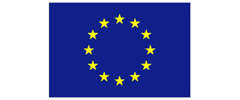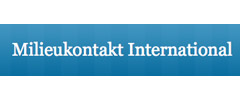WECF at the 5th European Conference of GMO-free regions in Lucerne
Genetic Engineering: neither safe, nor democratic
28.04.2009 |WECF Press Release
The use of genetic engineering in food and feed is not only a threat to our health, but also a great danger for our democratic rights. Numerous government representatives from various countries came to this conclusion today, on the Food & Democracy conference in the Swiss city of Lucerne.
The theme of the 5th European Conference of GMO-free regions this year was "Food and Democracy". In one case leading government officials from the participating countries Austria, Switzerland, Germany, Scotland and the Czech Republic agreed on: genetic engineering and patents create the opposite of democracy.
Gene technology "monopolizes the right and access to food," said the Swiss Estates Councilor and President of the Consumer Foundation Simonetta Sommaruga.
Renate Künast, the chairman of the German Bundestag Alliance 90/Die Grünen stood up for resisting genetic engineering as a "new kind of colonial policy". She urged the participants to bear up under the pressure of the European Commission and stand up for GMO-free regions: "Each and everyone has a right to GMO-free plates and feed troughs."
Backdoor feed
According Künast "genetically modified feed currently is the main gateway for genetic engineering in Europe." Consumers can only consciously decide whether they want to shop genetic engineering or not, if they know where their meat and their milk come from.“ A comprehensive labeling requirement, even for animal feed, is needed.
"GMOs (genetically modified organisms) are also part of an international division of labor, which makes us all dependent on," said Künast further. "GM-soja is produced in the south and fed to our animals, which led to record harvests, but also to record poverty for the people who live there. 9 kg GM-soybeans are 1 kilograms of meat for us. That is not fair. Europe is also responsible for this division of labor. "
Right of co-existence, not of contamination
Democracy means an equal existence of organic and conventional agriculture, if it with or without genetic engineering. But by pollen flight, insects, pollution and mixing of seed and animal feed during transport and storage, a purely organic farming can no longer be guaranteed.
The use of genetic engineering in agriculture constricts the rights of consumers to organic food. A co-existence is therefore impossible. Consumers have no more freedom of choice - which is the basic principle of democracy. Austria and Switzerland have already understood this and have already declared their countries as GM-free zones.
Friedrich-Wilhelm Graefe zu Baringdorf, farmer and member of the European Parliament says: "The right to GMO-free agriculture and GMO-free food is the basis of the EU legislation: There is no right of contamination. About the Article 26a of the release line, the member States are obliged to take such co-existence measures to enforce and conserve the protection of GMO-free agriculture in the long run. "
European consumers have power
Regarding genetic engineering Europe is already in a very different situation than it was ten years ago: Today, consumers want to decide for themselves.
That the engagement of non-governmental organizations and consumers is having an impact in Europe and is not senseless, shows, for example, the ban on gene-maize MON810 in Germany last week. Renate Künast was sure that we will be "more able to determine what ends up on our plate."
Soon the European Commission intends to approve two more genetically modified plants. "These approvals must be prevented, the import of animal feed can not be a further gateway for genetic engineering."
Nicholas Berlakovich, Austrian Federal Minister for Agriculture, Forestry, Environment and Water, sees his country as a pioneer against genetic engineering and as a co-founder of the network of GMO-free regions. It has a national ban on all GMO varieties, backed up with scientific studies. He proudly stated that Austria does not produce quantity, but quality. "We focus on top quality, and that is food without genetic engineering." Berlakovich demanded that the European Commission should amend its rules: Apart from safeguarding itself with hedge clauses, there should be national decision-making procedures in accordance with the subsidiarity principle: "Regions should be able to determine for themselves, whether they want GMOs. The Question: What bring GM varieties actually? is not discussed. Genetic engineering has no positive benefits to agriculture, consumers reject it because the benefit is low. "He calls for regional products to consume and thus leave the value chain in the region.
Risks are unpredictable
Neither health, nor any other risks of genetic engineering are medium-and long-term predictable. The Swiss insurance company Vaudoise announced a few weeks ago that they are not liable for damages in the handling of GMOs. Supposedly this disclaimer has nothing to do with the possible danger, but the risks should be predictable.
"Obviously, the risks posed by genetic engineering, are not. Otherwise, there wouldn´t be any reason to decline liability for any possible damage. ", said Chiara Simoneschi-Cortesi, president of the National Council of Switzerland, in her opening speech.
And further: "If insurances do not want to admit to genetic engineering, consumers certainly should not do so either. They should have the right to decide for themselves whether they eat GM food or not."
Genetic engineering: a success story?
Latest figures speak against the impression that the genetic engineering industry wants to suggest to consumers and politicians: An investigation by Friends of the Earth Europe clearly comes to the conclusion that genetic engineering by far is not yet established throughout the whole world.
After at least already 15 years of commercial crop growing, it is only 2.4% of the arable land worldwide on which GMOs are cultivated. In Europe it is just 0.2%, of which 75% is in Spain. Worldwide, only five countries grow GMOs on a large-scale and it is only two main variants (pesticide resistent varieties and Bt-maize). Overall, there is only four species on the market (soybeans, corn, cotton, canola-Colza).
"And the corporations want us to outsell this as a success story?" asks Sabine Brückmann, coordinator for agriculture from WECF, Women in Europe for a Common Future.
The real economic success for the handful of major corporations involved (Monsanto, Syngenta, Bayer ScienceCrop and DuPont) lies in the monopolization of the seed market. For example, Monsanto in recent years, has bought up many companies.
Vandana Shiva, winner of the Alternative Nobel Prize, remarked on the 4. conference: "Of course, the farmers believe that they have a choice, because they get 20 different brand names. They have no idea that each of these 20 companies is licensed by Monsanto. 95% of genetically modified seeds which are now sold around the world come from Monsanto. "
Genetic engineering is and remains a high risk, as too many questions are unanswered. At that, nobody recognizes a real advantage for the consumer. "Why are you researching in an area where there are no market needs?" wonders Hansjörg Walter, president of the Swiss Farmers' Association, and deservedly so.
Berlakovich: "The consequences are definitely not predictable. We all live in a common, large ecosystem. Therefore we need to bring together common initiatives for a diverse, multi-functional agriculture in Europe."
Related News
GoodFood4All
WECF and partners all over Europe start GoodFood4All Campaign
06.11.2018
Promotion of Healthy and Economical Agriculture and Livestock Farming
How to improve with simple means agricultural cultivation methods and local livestock farming and make them more profitable
08.08.2018
English summary of WECF publication on pesticides in surface waters in Dutch province Drenthe
For our non Dutch readers we now publish an English summary of the publication about pesticide pollution in the surface waters of Drenthe
09.11.2017
We've made it - overwhelming success of our crowdfunding campaign!
In the last 4 weeks we run a crowdfunding campaign to collect 4.000€ to finance 15 Biogas Toilets for deprived families in Uganda. Thanks to your great support we can now build even more!
22.06.2016
Time for EU to walk the talk on 2030 Sustainable Development Agenda
As part of SDG Watch Europe WECF calls for a consequent implementation of the Sustainable Development Goals by the European Union.
06.06.2016






































